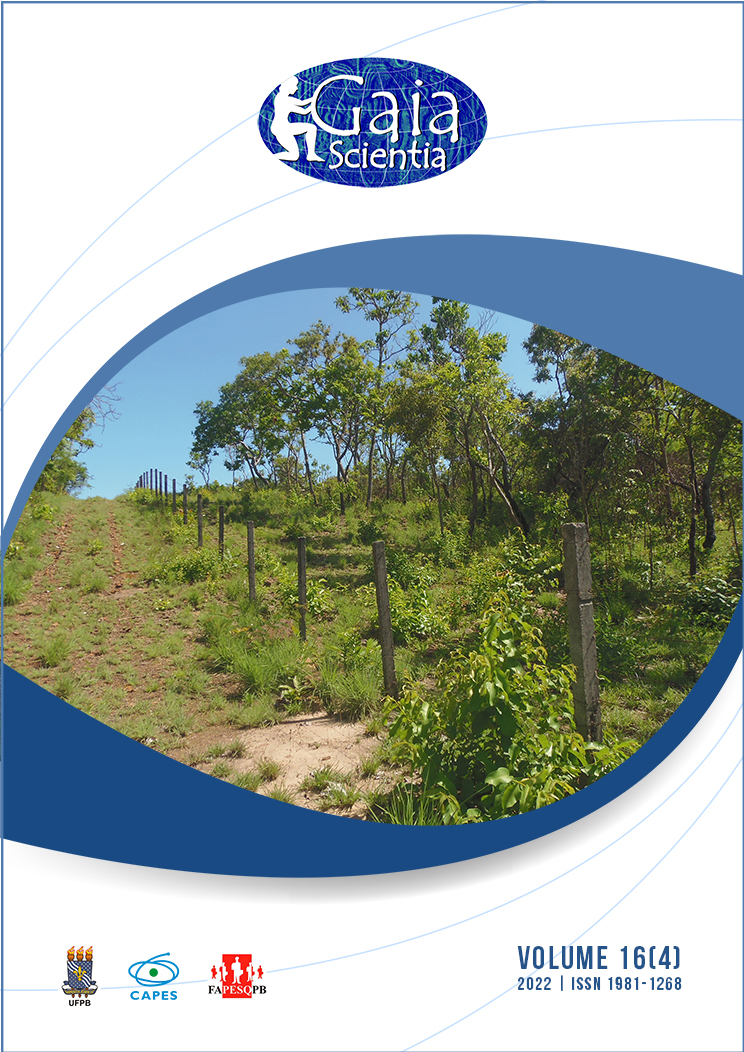Stream ecology: designing sample plans to understand the effects of land use on aquatic communities
DOI:
https://doi.org/10.22478/ufpb.1981-1268.2022v16n4.64902Abstract
Streams are lotic aquatic systems that make up to 70% of drainage networks, but they are neglected and often diverted, polluted and channeled due to the needs of growth and land occupation by human activities. Therefore, the objective of the present research sought to outline a proposal for a sampling plan to understand the effects of land use on aquatic communities, covering the Itajaí-mirim river basin (SC) as a case study. The methodology consisted of two steps: literature review, investigation of landscape analysis parameters and their influence on the invertebrate community; and, in the case study, criteria were selected for the sampling design of streams, based on geoprocessing tools and subsequent field activity. As a result of the first stage, 33 articles in two databases were retained for the extraction of landscape analysis metrics. Meeting the established, 21 sub-basins were selected, of which 12 favorites were determined, after field activity. It should be noted that listing criteria to understand the influence of soil on aquatic communities, associating geoprocessing metrics and field activity for later validation in a reference unit, are henceforth contributors to the composition of an efficient and effective sample design and of possible replication for other investigated areas.










